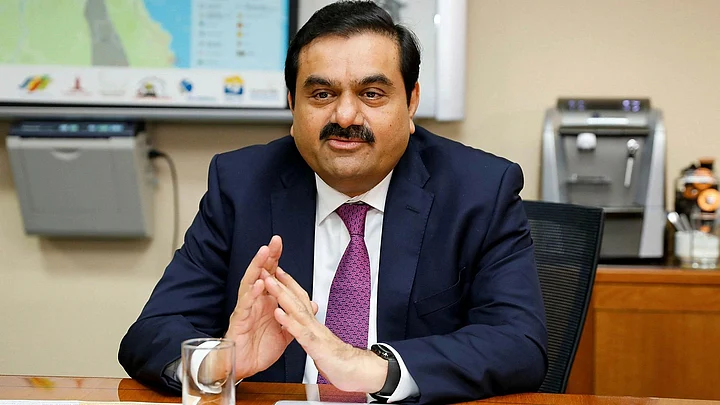
Introduction
In today’s fast-paced world, planning the perfect vacation or business trip can be overwhelming. From choosing destinations to managing flights, hotels, and tours, the process involves multiple steps. This is where a travel agent becomes a true ally. A travel agent plays a vital role in simplifying travel planning, offering personalized experiences, saving time, and ensuring every aspect of the journey runs smoothly. In this article, we’ll explore the functions, benefits, and importance of a travel agent, along with detailed insights into the evolving travel industry.
1. Who is a Travel Agent?
A travel agent is a professional who assists individuals and groups in planning and booking their travel itineraries. They handle everything from flight reservations to hotel accommodations, car rentals, cruises, and customized tour packages. The expertise of a travel agent ensures that travelers enjoy a seamless travel experience, free from unnecessary stress or confusion.
Unlike online booking platforms, a travel agent provides human assistance and professional advice. They can recommend the best destinations, negotiate prices, and handle sudden changes such as cancellations or rebookings—something automated systems often fail to manage effectively.
2. The Benefits of Using a Travel Agent
a. Time-Saving and Convenience
A travel agent takes care of every minute detail, allowing travelers to relax and focus on the excitement of the journey. Instead of spending hours comparing flight options or reading hotel reviews, a travel agent uses their industry knowledge and tools to create an efficient and enjoyable travel plan.
b. Cost-Effective Travel Planning
Many people assume that booking directly online is cheaper, but this is not always the case. A travel agent often has access to exclusive deals, group discounts, and special promotions unavailable to the general public. This can make your travel not only more convenient but also more affordable.
c. Expert Guidance and Personalized Service
A professional travel agent offers personalized recommendations based on your preferences, such as adventure trips, luxury vacations, or cultural tours. They understand global travel trends, safety concerns, visa requirements, and local customs, ensuring your trip is well-planned and secure.
d. 24/7 Assistance and Emergency Support
When unexpected problems arise—flight cancellations, lost luggage, or health emergencies—a travel agent provides immediate support. This safety net can turn a stressful situation into a manageable one, proving the true value of professional travel assistance.
3. How Travel Agents Make Travel Easier
A travel agent simplifies the entire travel process from start to finish. They start by understanding the client’s needs—budget, destination, travel dates, and special requirements. Then, they design an itinerary covering transportation, accommodations, sightseeing, and dining options.
Furthermore, a travel agent manages complex travel plans like multi-country tours, corporate travel, or destination weddings. They ensure smooth coordination among airlines, hotels, and local tour providers. With their vast network of contacts, they can arrange exclusive experiences—such as private tours, VIP transfers, or special events—that make the travel memorable.
4. The Role of Technology in Modern Travel Agencies
The modern travel agent uses advanced tools and digital platforms to deliver faster and more efficient services. Online booking systems, customer relationship management (CRM) software, and real-time flight tracking apps have revolutionized how travel is organized.
However, despite technological growth, the human touch of a travel agent remains irreplaceable. Travelers still prefer speaking to someone who understands their personal preferences and can provide genuine recommendations rather than relying solely on algorithms.
5. Types of Travel Agents
Different travelers have different needs, and travel agents specialize in various categories to cater to those needs:
-
Leisure Travel Agents: Focus on family vacations, romantic getaways, cruises, and adventure trips.
-
Corporate Travel Agents: Handle business travel for companies, including meetings, conferences, and events.
-
Destination Specialists: Experts in particular countries or regions, offering deep local insights.
-
Online Travel Agents (OTAs): Operate digitally, providing web-based booking and support services.
-
Luxury Travel Agents: Design high-end, exclusive experiences with premium services and accommodations.
Each type of travel agent plays a unique role in making travel easier and more enjoyable for different kinds of travelers.
6. The Importance of Travel Agents in Today’s World
Even with the rise of digital booking platforms, the demand for travel agents continues to grow. This is because travel has become more complex, with new regulations, documentation requirements, and safety concerns emerging regularly. A travel agent stays up to date with global guidelines and ensures all aspects of travel—from visa applications to insurance coverage—are managed correctly.
Additionally, a travel agent can design eco-friendly and sustainable travel experiences that align with today’s global push toward responsible tourism. They can recommend green hotels, local community tours, and environmentally conscious transportation options.
7. How to Choose the Right Travel Agent
Selecting the right travel agent is essential to ensure a satisfying travel experience. Here are a few tips:
-
Check Credentials: Ensure the travel agent is certified by recognized organizations like IATA or ASTA.
-
Read Reviews: Look for client feedback and ratings online.
-
Discuss Budgets Openly: A professional travel agent will tailor your trip to your budget without compromising quality.
-
Evaluate Communication: A good travel agent communicates clearly, responds promptly, and provides transparent pricing.
Choosing wisely ensures your travel experience is smooth, enjoyable, and stress-free.
8. Future of Travel Agents and the Travel Industry
The future of travel agents looks bright, thanks to the evolving nature of travel. As travelers seek more personalized and authentic experiences, the expertise of a travel agent becomes even more valuable. Artificial intelligence, virtual reality tours, and digital payment systems are enhancing travel planning, but they work best when combined with human understanding and emotional intelligence.
Furthermore, post-pandemic travel trends show that travelers value security and guidance more than ever, leading to renewed trust in professional travel agents.
Conclusion
A travel agent is more than just a planner—they are an architect of unforgettable journeys. From securing the best deals to providing 24/7 support, a travel agent transforms the often-complicated process of travel planning into an enjoyable experience. Whether you’re traveling for business, leisure, or adventure, having a professional travel agent by your side ensures your travel is efficient, safe, and filled with memorable moments.
In a world full of choices, a travel agent stands out as a trusted guide—someone who turns dreams into destinations and every travel into a story worth telling.




